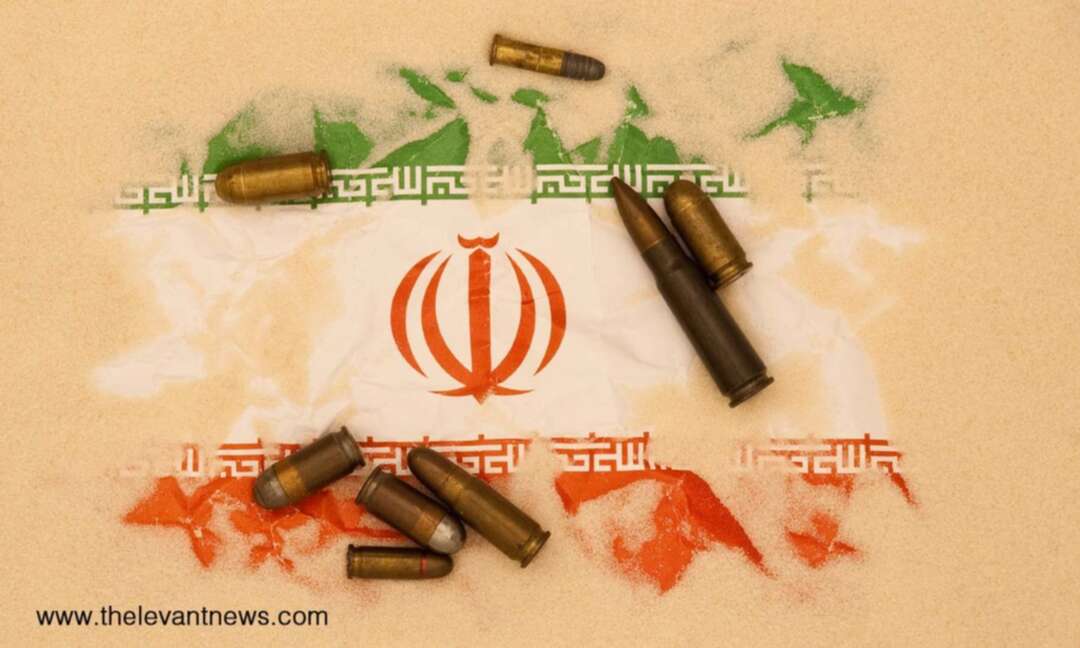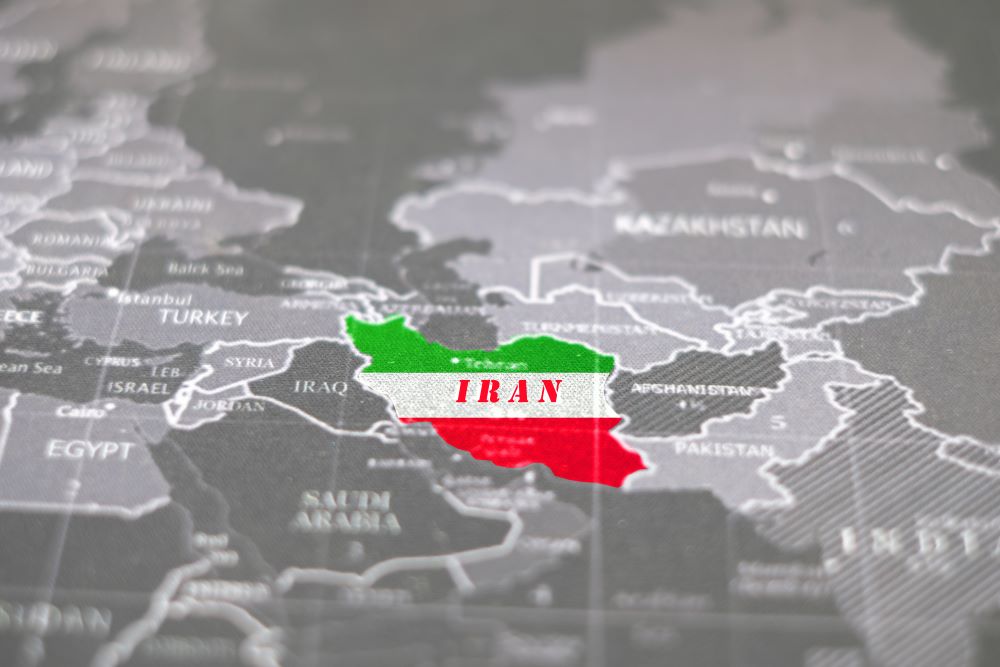-
Khamenei fears the recent and widespread uprising of the people of Isfahan

Zayandehrood River, which passes through the center of this province, has been one of the manifestations of this city for centuries. Two historical and ancient bridges, "Si O Se Pol Bridge ''(meaning 33 bridge) and "Khaju Bridge," were built in the 16th century.
Before the start of the rule of the mullahs in Iran in 1979, the Zayandehrood River was one of the most water-rich rivers in Iran and water flowed in it in all seasons of the year, and at the end, water poured into a wetland called Gavkhoni Wetland, which was the habitat of migratory birds. Farmers in the province also used the water from the river to irrigate their fields. Due to the fertile soil around this river, excellent quality types of vegetables, grains, and fruits were produced in this province.

However, the regime's mismanaged policies and destructive projects, including the building of dams without regard to the province's ecosystem, have resulted in severe ecological problems. This essential river has faced water shortages and droughts for years because of the regime's lack of appropriate environmental policies and colossal corruption.
The river's dryness has directly affected the livelihoods of hundreds of thousands of farmers in the province and adversely affected the environment. Government affiliated plants such as Mobarakeh Steel Company or several ceramics factories, etc., have been using the Zayandehrood River water excessively and irrationally, causing the gradual dryness of this important and vital water source for the ordinary people and farmers.
Additionally, the government has installed several large pipelines to transfer a significant amount of the Zayandehrood River to Yazd which is located in the neighborhood of Isfahan. As a result, the Zayandehrood River and Gavkhoni Wetland dried up, and the farmers' livelihood depended on the water of this river were severely affected and destroyed.
Furthermore, the regime had dug a large number of deep wells, withdrawing water from underground reserves, affecting the ecology of the area, causing extensive land subsidence in this province, especially in the city of Isfahan. The situation is so fragile, critical, and unfortunate that even the ancient monuments of this city are exposed to destruction. Large cracks and signs of deterioration have appeared in many of these historical monuments.
Farmers in Isfahan, who have worked hard their entire life and have experienced a demise in their livelihood due to the lack of water, skyrocketing prices of commodities, etc., rallied to demand the opening of the Zayandehrood Dam and the flow of water in the riverbed so that they can irrigate their fields again.
In the last days of his presidency, Hassan Rouhani's government tried to convince the farmers to end their protests and, as usual, offered some hollow promises of compensation and on July 11, the government opened the dam gates, let the water be released to the riverbed for two weeks. However, after two weeks, the water was shut off and redirected to supply the government-affiliated factories' water needs. As usual, the demands and welfare of the farmers and ordinary people were ignored by the government's officials, and the plight of the people of Isfahan met deaf ears of the government officials.
On Friday, the 12th day of a sit-in by impoverished farmers in Isfahan, tens of thousands of people demonstrated in support of the farmers' protest against water shortages and the clerical regime's plundering policies that have led to the drying up of the Zayandehrood River and the destruction of agriculture and livestock. The massive protest spanned a large area of the Zayandehrood Riverbed.
On Friday, November 19, more than 150,000 people in Isfahan joined the rally in support of farmers. They protested, chanting slogans accusing incompetent officials of causing the Zayandehrood River to dry up and demanding water flow into the Zayandehrood River.
Khamenei and his appointed president, Ebrahim Raisi, who see any kind of gathering or rally, a threat to their regime's existence, tried to convince the people to end their protests and repeatedly offered hollow promises and prompt actions. "I have ordered the ministers of energy and agriculture to take immediate steps to deal with the issue," Iran's First Vice President Mohammad Mokhber said on television, hoping to bring the situation to a state of calm.
After experiencing such meaningless promises from all sorts of government officials, the people were not going to be fooled again this time and chanted: "We will not return home until water flows back into the river," "Where is my Zayandehroodud River," "Zayandehrood River is our inalienable right," and "Isfahani shout, demand your rights." If they could find a solution, they would do so much sooner.
The Iranian regime's suppressive forces and secret services, who are worried about the presence of supporters and members of the resistance affiliated with the Mojahedin Khalq Organization, tried to send a number of their agents into the crowd and chanted slogans in support of Khamenei and against the Mojahedin. But they faced the raging reaction of the people and continued their slogans pointed at the regime, its officials, and destructive policies.
The reality is that the Iranian society is like a barrel of gunpowder that can explode at any moment with any rally, gathering, anti-government action, etc., due to the incompetence and widespread corruption in the ruling system that has caused the majority of people to fall below the poverty line and inflation to reach the highest level in Iranian history. A few months ago, the same situation occurred in Khuzestan province when the water of Karoon River and Hur-Al-Azim Wetland, which are the main source of work for the cattle breeders and farmers of this province, dried up due to irrational and illogical construction of facilities and manufacturing plants belonging to the Revolutionary Guards that led to widespread protests in the province. The protests rapidly spread to other provinces, and even the people of Tabriz in the northern part of Iran staged several
demonstrations in support of the people of Khuzestan. Eventually, the regime was able to temporarily quell the protests by sending its suppressive forces to the area, killing several innocent protestors, arresting hundreds of people, and injuring many. Fearful of the spread of social unrest. Eventually, the regime was forced to listen to the demands of the protestors by partially opening the dam and letting the water be released into the Karoon River. Now, the same issue has arisen again in Isfahan province, which, if it continues, will definitely spread to other parts of Iran. Because all the people of Iran are
dissatisfied with the current situation and want a fundamental change in government, this is an undeniable reality that Khamenei is well aware of, and so far has only been able to prevent the uprising of the people through crackdown, fake promises, repression, and killing. Employing such a tactic cannot last for long, a mere fact that many experts in Iran and beyond agree on. Ahmadinejad, the former president of the regime, had recently said that a destructive storm is brewing that would take everyone in the regime with it.
Cyrus Yaqubi is a Research Analyst and Iranian Foreign Affairs Commentator investigating the social issues and economy of the Middle East countries in general and Iran in particular.
You May Also Like
Popular Posts
Caricature
BENEFIT Sponsors BuildHer...
- April 23, 2025
BENEFIT, the Kingdom’s innovator and leading company in Fintech and electronic financial transactions service, has sponsored the BuildHer CityHack 2025 Hackathon, a two-day event spearheaded by the College of Engineering and Technology at the Royal University for Women (RUW).
Aimed at secondary school students, the event brought together a distinguished group of academic professionals and technology experts to mentor and inspire young participants.
More than 100 high school students from across the Kingdom of Bahrain took part in the hackathon, which featured an intensive programme of training workshops and hands-on sessions. These activities were tailored to enhance participants’ critical thinking, collaborative problem-solving, and team-building capabilities, while also encouraging the development of practical and sustainable solutions to contemporary challenges using modern technological tools.
BENEFIT’s Chief Executive Mr. Abdulwahed AlJanahi, commented: “Our support for this educational hackathon reflects our long-term strategic vision to nurture the talents of emerging national youth and empower the next generation of accomplished female leaders in technology. By fostering creativity and innovation, we aim to contribute meaningfully to Bahrain’s comprehensive development goals and align with the aspirations outlined in the Kingdom’s Vision 2030—an ambition in which BENEFIT plays a central role.”
Professor Riyadh Yousif Hamzah, President of the Royal University for Women, commented: “This initiative reflects our commitment to advancing women in STEM fields. We're cultivating a generation of creative, solution-driven female leaders who will drive national development. Our partnership with BENEFIT exemplifies the powerful synergy between academia and private sector in supporting educational innovation.”
Hanan Abdulla Hasan, Senior Manager, PR & Communication at BENEFIT, said: “We are honoured to collaborate with RUW in supporting this remarkable technology-focused event. It highlights our commitment to social responsibility, and our ongoing efforts to enhance the digital and innovation capabilities of young Bahraini women and foster their ability to harness technological tools in the service of a smarter, more sustainable future.”
For his part, Dr. Humam ElAgha, Acting Dean of the College of Engineering and Technology at the University, said: “BuildHer CityHack 2025 embodies our hands-on approach to education. By tackling real-world problems through creative thinking and sustainable solutions, we're preparing women to thrive in the knowledge economy – a cornerstone of the University's vision.”
opinion
Report
ads
Newsletter
Subscribe to our mailing list to get the new updates!






















